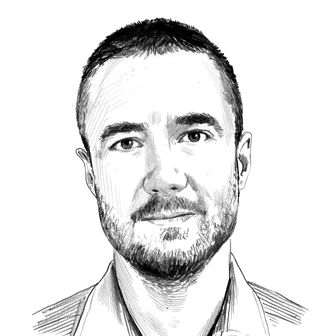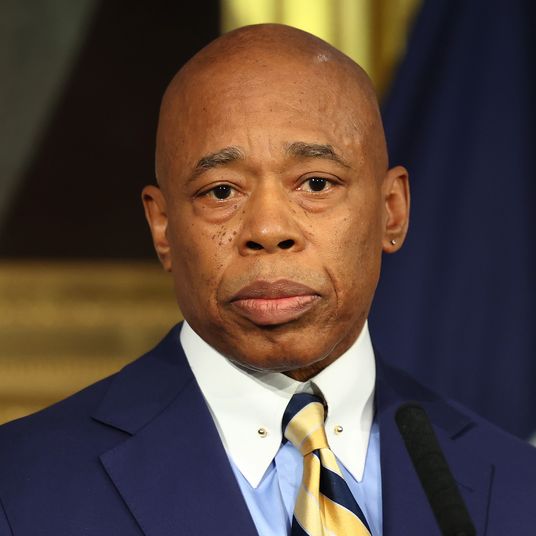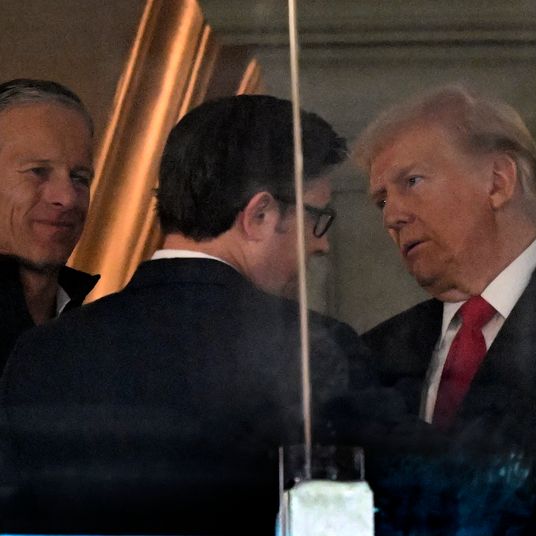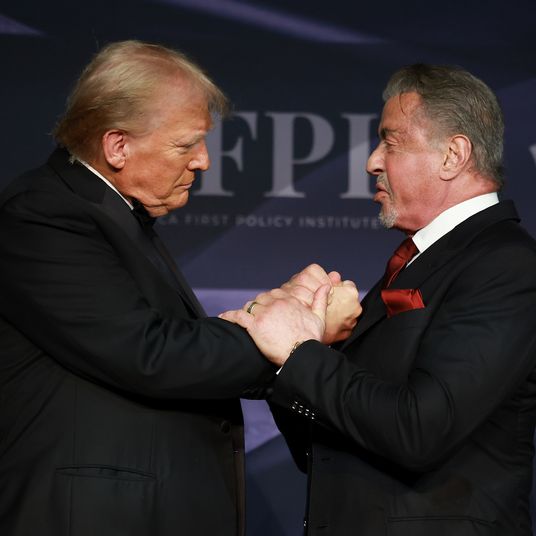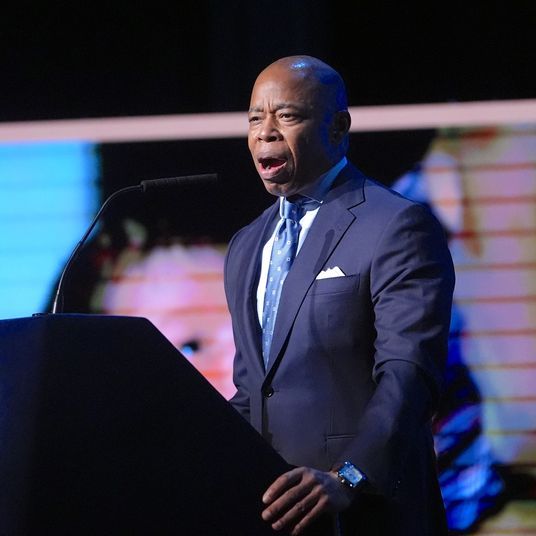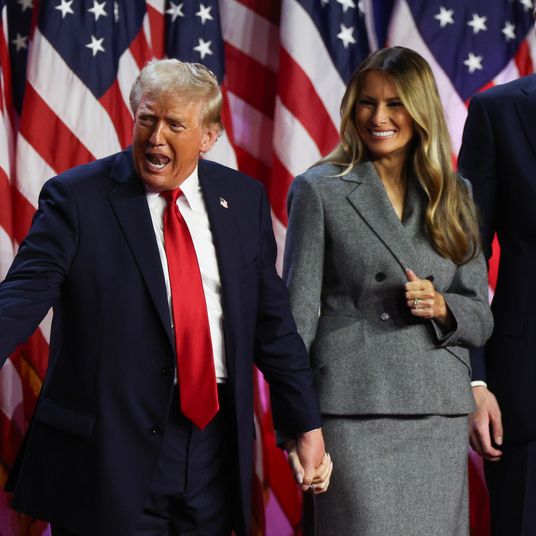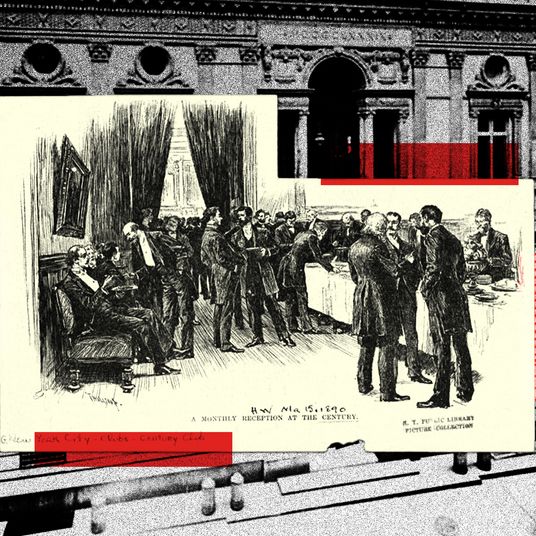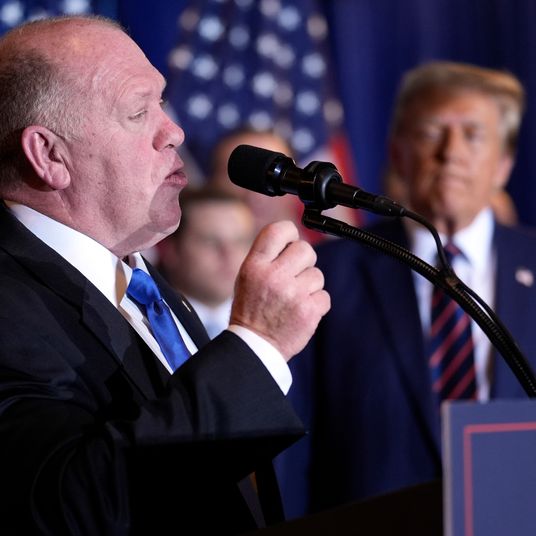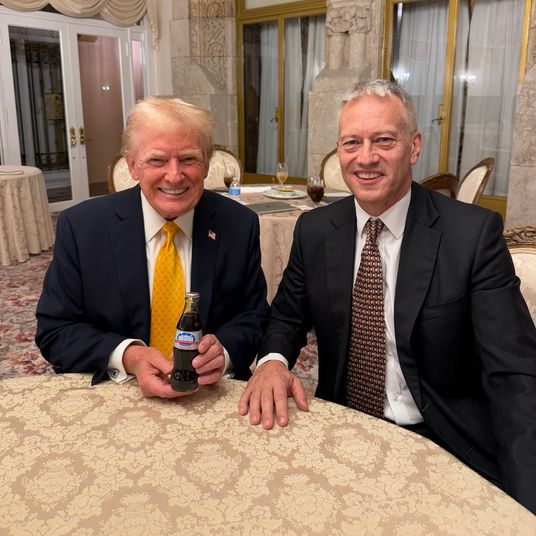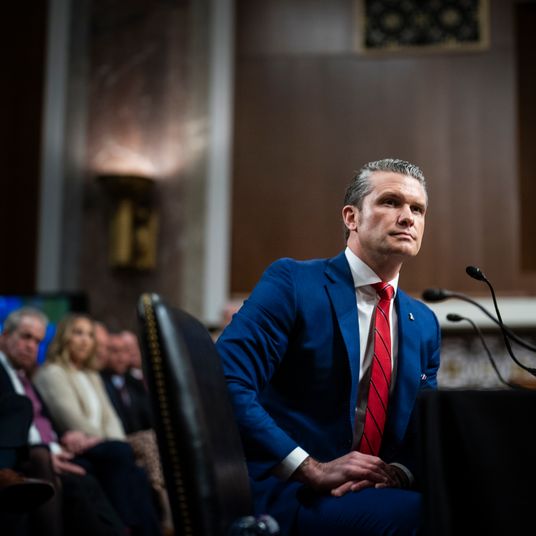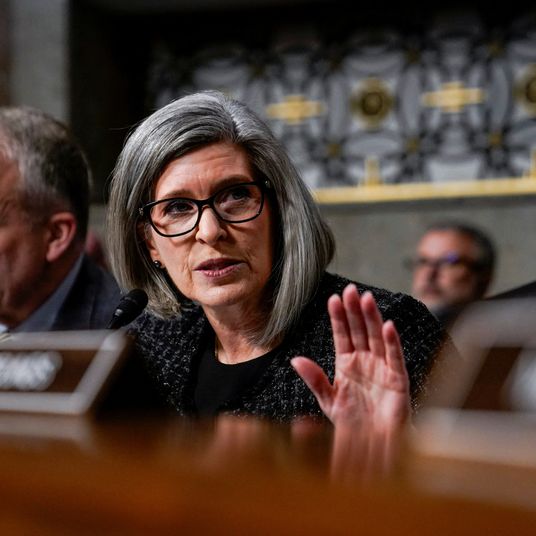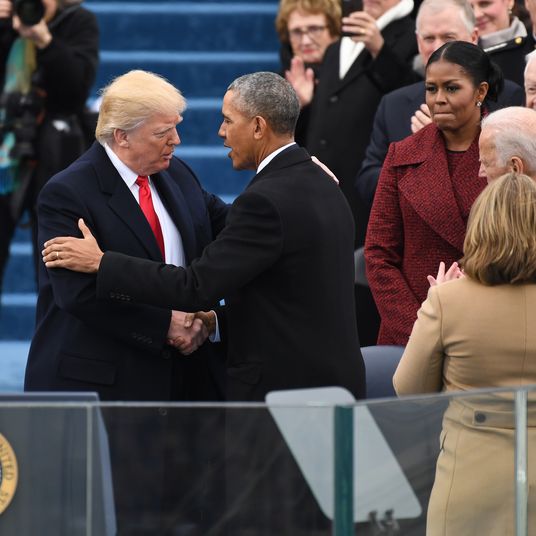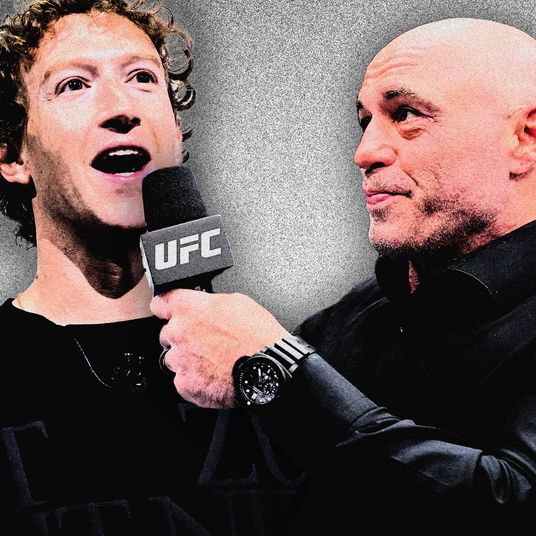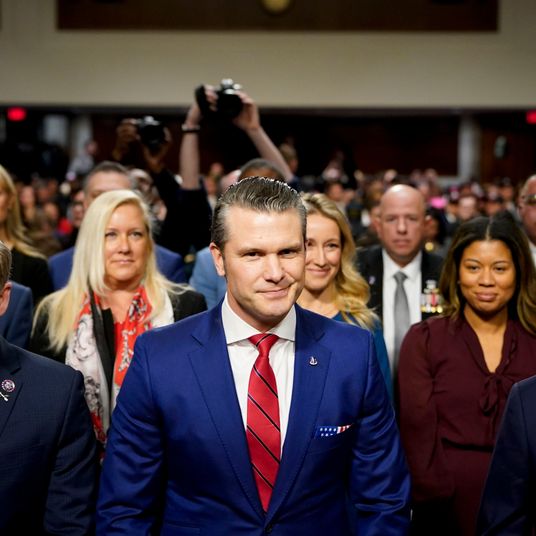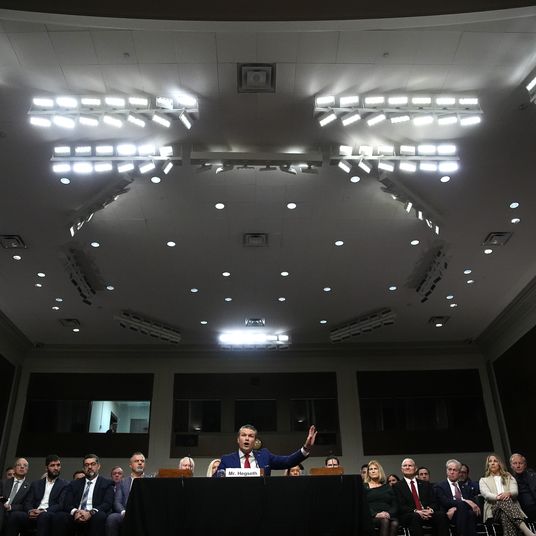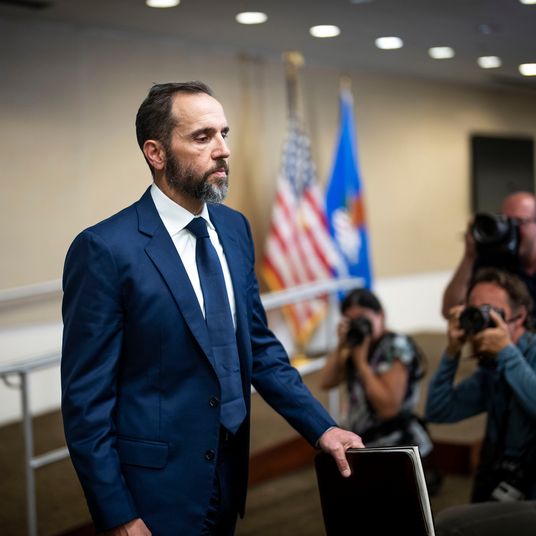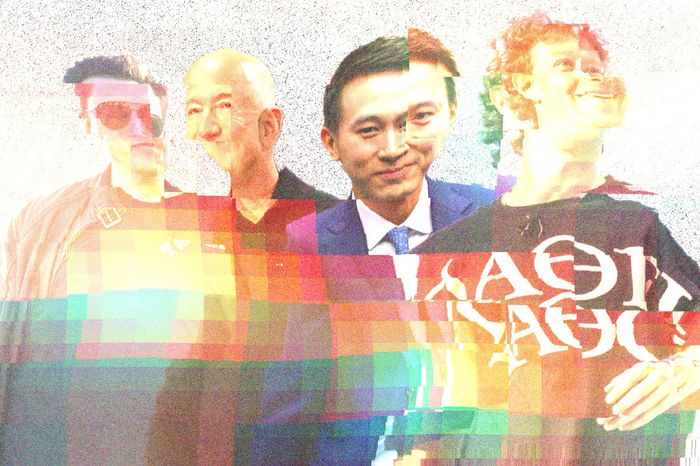
In Joe Biden’s otherwise wan and gloomy farewell address, the president delivered one memorable turn of phrase. Borrowing from Dwight Eisenhower, he warned of an ascendant “tech-industrial complex,” and that “an oligarchy is taking shape in America of extreme wealth, power, and influence that really threatens our entire democracy, our basic rights and freedom and a fair shot for everyone to get ahead.” Dwight was right and Joe is too. But — and this goes for both of them — what a thing to say right before relinquishing the ability to do anything about it.
In just a few days, Donald Trump’s second inauguration will provide plenty of visual evidence to back up Biden’s new coinage. Reportedly sitting on the dais behind the president, alongside Cabinet members and elected officials, will be most of the most powerful people in tech, fierce rivals with a collective net worth approaching a trillion dollars: Elon Musk, Mark Zuckerberg, Jeff Bezos, Tim Cook, Sundar Pichai, and TikTok CEO Shou Chew.
Some are ecstatic to be there, while others are making it known, Mr. “badass” President, that they’ve come around. Others would probably rather be anywhere else, but they won’t be: In tech’s new loyalty era, your continued membership in the runaway “tech-industrial complex” depends in some way on the feelings and judgment of a single man. American business leaders have always sought favor with the administration in power, and it’s correct and important to acknowledge the current situation as a matter of degree, not a clear break from an innocent past. But Trump’s billionaire tableau can be understood as his argument to the contrary: Big tech was my enemy, and now it belongs to me.
Does it? There’s a case to be made. Running quickly and incompletely through the list: Elon Musk, former Trump skeptic but recent mega-donor and omni-adviser, runs a business empire with billions of dollars in federal contracts and plenty of room to grow, not to mention a car company with complicated ties to and dependencies on China. Jeff Bezos’s primary focus has shifted from Amazon to rocket company Blue Origin, which just this week took a big step toward becoming a credible competitor to SpaceX for said contracts. Mark Zuckerberg, who Trump has said on multiple occasions should be in jail, is, like Pichai at Google, fighting antitrust actions by the federal government, and stands to benefit more than anyone else from the looming possibility of a TikTok ban. Shou Chew, the least powerful and well-known of the group, is there in the hope that Trump, who tried to ban TikTok in 2020 before deciding that he would rather be the one to save it, intervenes in a way that doesn’t destroy the company.
More than ever, the way tech companies interact with the federal government will depend on their leaders’ interactions with the president. If this sounds like a grim prospect, it should also be familiar to consumers of vexingly but to some degree unavoidably personality-driven political news during the last administration. The big questions looming now: Will Elon convince Trump to sideline Jeff? Will he or Mark or Sundar somehow get control over TikTok, or convince Trump to let it die? What will be extracted from whom to get what while hundreds of millions of customers and users and employees and participants in the economy wait for these guys to hash things out at Mar-a-Lago?
It’s tempting to point out the risks for tech leaders in such a personalized, loyalty-based environment, and to insist that they and their companies will ultimately pay a price for the obsequiousness or submission or compromise. For liberals, this has manifested as knowing predictions that Trump and Musk’s relationship is doomed by competing egos; for some conservatives, it takes the form of a belief that Zuckerberg’s MAGA makeover will be recognized as craven and that he’ll be punished and sidelined anyway. Maybe, sure, it’s quite possible: Trump is impulsive, chews through people quickly, and can seem more interested in projecting power than figuring out how to wield it. He’s also attuned to his base, which will have to learn to love someone like Zuckerberg, to put it gently. He burns people in business and politics, and some of the men sitting on that stage are probably going to get burned, too.
But there’s also some wishful thinking happening here, a yearning for justice in the form of narrative closure. I would get prepared for a less spectacular and satisfying outcome. There are serious and, in some countries, mortal political risks to being an oligarch, and such power does come with contingencies that might sound foreign, or at least extreme, to citizens of a country where billionaire CEOs are avatars not just of aspirational wealth but of total freedom (from need, want, oversight, fellow man, etc.). Authoritarian leaders sending billionaires into political exile or seizing control of important firms is commonly (if not entirely correctly) understood as something that happens over there. But even it happens here, the comparison is instructive: Those foreign oligarchs are still powerful, and they’re still rich, so long as they behave — at the end of the day, in their respective industrial complexes, they’d still rather be themselves than anyone else. Collapse is not imminent, comeuppance is perpetually delayed, and they can be replaced anyway. If the “tech-industrial complex” stays in line, it’ll probably pay off for at least some of them, and their firms. As for the potential costs of a more openly corrupt, state-aligned industry, those are for everyone else to pay.
More From This Series
- Social Media Is for Consuming Disasters, Not Surviving Them
- The Two Competing Futures of Self-Driving Cars
- Tiktok’s Final Appeal to the Supreme Court Didn’t Go Too Well


